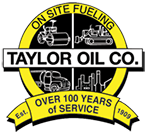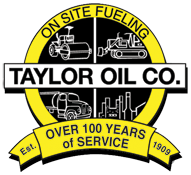The typical warranty on a tank is 30 years. If you suspect the warranty on your oil tank is about to run out, what do you do? Whether you’re having issues with it or not, here are some important considerations on tank warranties.
Many tanks are coming up on – or surpassing – their warranty periods throughout the country, putting tank operators in a bit of a quandary. What does this mean for you? About 36 states provide environmental remediation programs to address tank releases at no or low cost to the operators. The other 14 states offer financial relief through some type of private insurance.
According to Fuels Market News, nearly 60 percent of tanks are more than 20 years old. Nearly 40 percent are between 20 and 29 years old. Tank materials and construction vary by operator, but most are comprised of fiberglass and steel. But beyond that, there isn’t much data out there as to exactly how many out-of-warranty tanks remain out there, which ones have had problems, and whether there is a correlation between tank age and useful life span. Unfortunately, this leads to a lot of guesswork, but it’s all we have right now.
It seems the original 30 years in the 30-year warranty guideline was arrived at quite arbitrarily. Many people speculate that it was created as a marketing gimmick way back when. Other than that, there’s no real evidence that says 20 or 40 years would be a better choice. Making matters worse is that there’s no established criteria pointing to the specific age at which tank performance starts to decline.
Many experts would say, when pressed, that many tanks last much longer than 30 years, perhaps as long as 40 or 50 years.
What’s the Solution?
Making upgrades to an aging storage tank takes a lot of money, even if you have insurance to cover some of it, which will in turn raise premiums and deductibles. And it’s not just the tank itself that has to be replaced. You also have to replace or upgrade the piping and other components.
If you are not part of a state program to offset cost, you must provide proof of financial coverage or demonstrated capability to cover $1 million for any spills that may occur. Failure to provide proof could raise a red flag and, ultimately, lead to your business being put in jeopardy.
But what do you do if you have a tank that’s nearing the warranty point but hasn’t quite reached it? Should you be thinking about replacement sooner rather than later? If time is running out, you will have to consider making an upgrade in the near future, shutting down or selling your site.
The situation isn’t as dire for those who have been putting in the necessary resources over the years to maintain and service their tanks, and who have been documenting it all along (this is key). State programs seem to be a bit more lenient, especially if there has never been an issue with maintenance or compliance. However, state budget problems could lead to big changes to these programs, but only time will tell.
Contact Taylor Oil
Taylor Oil is committed to educating our customers on fuel tanks and other related products. To learn more or to schedule 24/7 service, contact us today.


